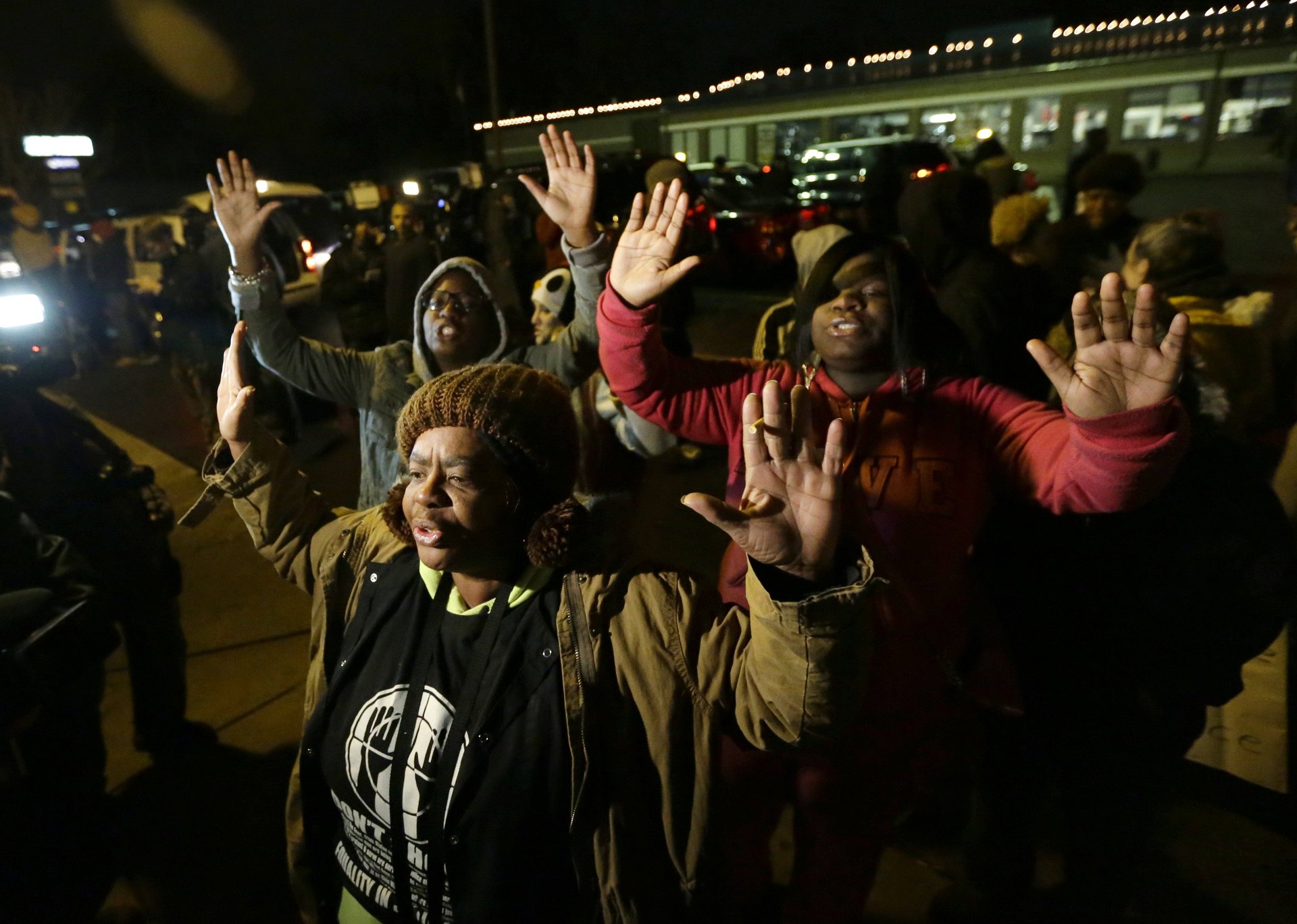It’s not just Ferguson: US cops who kill are rarely indicted
Few were surprised today when Darren Wilson, a white police officer who gunned down an unarmed black youth in Ferguson, Missouri, was not indicted by the grand jury tasked to judge whether a criminal case could be made against him.


Few were surprised today when Darren Wilson, a white police officer who gunned down an unarmed black youth in Ferguson, Missouri, was not indicted by the grand jury tasked to judge whether a criminal case could be made against him.
It’s not just cynicism about a racially-charged case, in which the officer’s description of Michael Brown’s death has been contradicted by multiple witnesses. It’s just an empirical reality: Few US police officers are asked to answer allegations of violent misconduct, and in fact, police killings are unevenly monitored by the government.
While there is no clear answer for why so few police misconduct reports lead to criminal charges, the plausible reasons—besides innocence—include the close working relationship between prosecutors and police officers, which could lead to conflicts of interest, and the benefit of the doubt that many citizens give to police officers doing a tough job.
Here’s what we do know about police indictments: The most complete recent study of law-enforcement misconduct comes from the Cato Institute, a libertarian think-tank, which tracked reports of officer misconduct from April 2009 to December 2010. In that time, 2,716 officers were involved in incidents where their use of force was questioned; 426 cases involved a fatality. Here’s how that turned out:

That’s pretty old data, and indeed, journalists who’ve examined the issue since Brown’s killing have found that there is little official monitoring of law enforcement’s use of violence. The FBI consistently undercounts police killings in its national crime statistics database, and even then its data show that as the violent crime rate is falling, and along with it the number of police officers killed in the line of duty, “justifiable” police killings are on the rise.
Several crowd-sourced efforts have been launched in an attempt to make up the information gap, including Fatal Encounters and Killed by Police. As their datasets grow, we should be able to learn more about the patterns of police misconduct. But it shouldn’t be the responsibility of volunteers to track the fatal mistakes of the police.